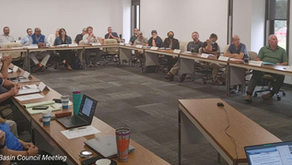The Art of Facilitating Root Cause Failure Analysis - And Why It Matters
- JD Solomon
- Jul 8, 2020
- 2 min read
Updated: Dec 24, 2022

Facilitating a Root Cause Analysis requires a special subset of facilitation and technical skills.
Keeping the basic facilitation roles and responsibilities in mind allows the facilitator to focus during sessions and to improve in key areas between assignments. The basic roles and responsibilities are common to all types of facilitation.
Prepare in advance - “who, what, when, why, where and “how”
Plan and distribute the written agenda
Define objectives at the beginning of the event
Establish expectations
Guide the group in presenting and sharing information
Provide closure and reiterate action items
Root Cause Analysis is a special subset of facilitation because it is perceived as an exercise to assign blame for failure. The following are some recommendations for root cause analysis interviews.
Schedule the interview in advance
Establish a desired time frame before the interview – shorter interviews are usually better
Use a standard format with a clear purpose
Meet at the interviewee’s place of work or neutral ground
Sit on the same side of the table – simulate that you are working together to solve a problem
Use visuals or drawings whenever possible to divert any animosity away from the interviewer/facilitator
Never find fault or place blame – create an open and safe environment that leads to information sharing
Listen for frustration or unusual language or references
Assume everyone is telling the truth
Interviews are the first step in Root Cause Analysis. There are several other steps that require good facilitation, including group settings to establish causal factors.
Root Cause Analysis is tricky to facilitate because it is perceived to be an exercise in assigning blame for failure. In reality, it is tricky because most root causes of failure are associated with management issues rather than individuals or components of systems.
JD Solomon, Inc provides services at the nexus of facilities, infrastructure, and the environment. Contact us for more information related to facilitating Strategic Plans, Board Retreats, Business Case Evaluations, Risk Assessments, and Root Cause Analysis.




Commentaires